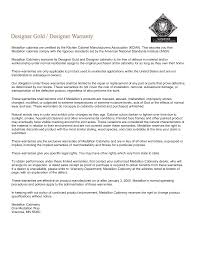
You can either call an electrician in Massachusetts a Master or a Journeyman. These professionals must hold a license and have general liability insurance. Additionally, they should have completed an apprenticeship. They must be familiar with the electrical systems of buildings. They are responsible for installing, connecting, and focusing stage lighting fixtures.
You must have a license for a journeyman.
Electrical contractors in Massachusetts must have a Journeyman license. To become licensed, an electrician must possess at least 8,000 hours of work experience and pass a written exam. A licensee must also have $500,000 of insurance coverage and at most one year experience working as a journeyman. Costs to get a license depend on which specialty they are applying for and what municipality they reside in.
An exam is required to become an electrician for Massachusetts. It has two parts. This test covers many legal and business topics. There are additional requirements to be an electrician in Massachusetts depending on the license you're applying for. If you want to be a master electrician, then you need at least one years of experience as a class B journeyman. An education program is an option for those who don't have enough experience.

Master electrician license
If you are a professional electrician in Massachusetts, you will need to renew your license every three years. 21 hours of continuing learning are required to keep your licence current. The Massachusetts Electrical Code must be covered in at least 15 hours. There are two separate examinations to take. You can either take them both on the same date or separate. Both exams are computer-generated, open-book. The minimum passing score of 70 percent is required.
The state's examination is required in order to be granted a master-electronics license in Massachusetts. After passing the exam, you will receive a certificate. The certificate will indicate your name as well as the fact that you passed this exam. This certificate will allow you to work as a systems technician.
Apprenticeship requirements
To become a Massachusetts licensed electrician, you will need to complete an apprenticeship. You must have completed at least 8,000 hours paid work under the supervision a licensed journeyman and 600 hours in school. Your apprenticeship may allow you to start schooling, but it is possible that you will begin schooling earlier. You should consult with the Massachusetts Department of Labor and Training to see what kind of experience they accept as credit toward your training.
Massachusetts apprenticeship programs take approximately five years to complete. It consists of both paid work and evening classes. To enroll in an apprenticeship program, you must be at least eighteen years old and have a high school diploma or GED. To demonstrate your talent for the trade, you will need to pass an aptitude exam. Massachusetts has several accredited apprenticeship programs. You can search through the Merit Apprenticeship Program of Associated Builders and Contractors of Massachusetts or its affiliate Gould Construction Institute.

General liability insurance
If you work as an electrician in Massachusetts, you will need to carry general liability insurance to protect yourself against potential lawsuits. The insurance can be obtained through your employer, or through a general liability agent. A Massachusetts independent insurance agent can help you quickly get quotes from many Massachusetts insurers. They can also help you to compare quotes.
Electrical contractors face a range of risks, including fires and electrocution. Furthermore, work in tight places can result in serious injury. In addition, expensive tools and equipment may be lost or damaged. Insurance can protect your assets and business.
FAQ
What happens if one of the parties doesn't accept their side?
Failure to fulfill your obligations under the agreement can lead to the law allowing the other party to declare your promise null and sue you for damages. Damages include the amount due plus interest, court cost, and legal fees.
Is there any limit on how much money I can spend for the project?
No. Your SCA will set a maximum cost for the project. The contractor may be willing to negotiate a lower price.
What is a service contract agreement?
An agreement between two parties for the provision of services is called a Service Contract Agreement (SCA). The SCA specifies the services to be provided, their cost, time and effort required, who will pay for them, and when they should start. It also stipulates what happens if either party breaches its obligations under the agreement.
How much does it take to get building permission?
It depends on your state and the complexity. It could also depend on whether or not you are applying to permission to build on your existing home. It can take several months to complete the application process. Be prepared to wait until it is completed.
What documents must I show to get building permission?
Your SCA will not suffice. You must also provide evidence that:
-
There are plenty of parking spaces available.
-
There are several access routes that can be used.
-
All utilities are available; and
-
All works must comply with applicable planning regulations.
What is the purpose of the service agreement?
The purpose of a Service Agreement (or Service Agreement) is to describe the terms upon which a customer accepts to buy goods from you. It also describes how you will offer those services to them as payment.
A Sales Order Form is the most popular form of this document. Here you will list the items being purchased and their prices. You can also list any other items such as delivery charges, VAT or insurance. Finally, you specify when the order should be delivered and paid for.
You may use a different document depending the nature of the transaction.
You might use an invoice if, for example, you are selling a product but providing a service.
You will probably need a Purchase Order Form to purchase items from another party.
Make sure to include all necessary information when you are creating a sales form.
Remember that the buyer will appreciate a more detailed sales order form.
Statistics
- Don't take their anger personally, they are mad about the situation 99% of the time. (activatemylicense.com)
- Depending on the client's trustworthiness and financial stability, a deposit is usually 10 to 50% of the total contract amount. (lawdepot.com)
- (1) Except as provided in paragraphs (a)(4) and (a)(8) of this section, if the estimated amount of the contract or subcontract is $10 million or more, the contracting officer shall request clearance from the appropriate OFCCP regional office before- (acquisition.gov)
- (3) The contracting officer may provide for a contract price adjustment based solely on a percentage rate determined by the contracting officer using a published economic indicator incorporated into the solicitation and resulting contract. (acquisition.gov)
- Reasonable late fees go up to 25% per year on unpaid sums. (lawdepot.com)
External Links
How To
What should a service contract include?
Every business relationship should have a Service Agreement (SA). It will outline what you expect and how it will be achieved. The SA also defines when and where you expect the other party to deliver on its contractual obligations.
A successful SA must include these key elements:
-
Both parties agree on the scope of work and the services they require.
-
Information about payment terms, including the start and end dates for delivery of goods/services.
-
An agreed price for your project.
-
Any additional costs like VAT etc.
-
If there are any other issues that need to be addressed.
-
Who will be responsible if something goes wrong with the job?
-
How disputes are resolved
-
What happens if a party breaches the contract.
-
What happens if there is a dispute
-
When does this contract go into effect
-
What happens when one of the parties doesn't perform?
-
What time do you need to pay your invoices?
-
Who pays for travel costs?
-
Where the money comes.
-
What happens if the client decides to change his mind about the project.
-
What happens when the supplier doesn’t show up.
-
Who is allowed to access the site during construction
-
What happens if a customer cancels the contract?
-
What happens if the product fails?
-
What happens if a manufacturer refuses to provide parts?
-
What happens when the equipment stops working?
-
What happens if the project takes more time than anticipated?
-
What happens when the work is not completed within the specified timeframe?
-
What happens when the project's quality falls below what you expected?
-
What happens when the cost is too high?
-
What happens if materials are not delivered on time?
-
What happens if the material arrives broken?
-
What happens if the products are not up to standard.
-
What happens if you cancel the job before it is complete?
-
What happens if the company goes bust.